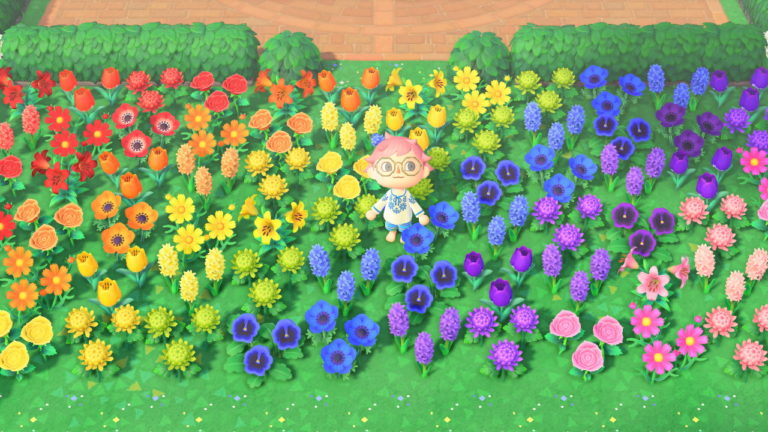
What Video Games Taught Me In 2020
January 21, 2021 Jamey Alea 0 Comments
2020 was certainly a nightmare dumpster fire of a year, but there were also some interesting things that came out of it. I was forced to take a good, hard look at myself, the people in my life, and the things I thought were important. In the beginning part of the year, while I was out of work due to the pandemic, I also had extra time on my hands to work on myself… and also to play video games. But actually, the act of playing games put me on the path towards embodying some skills I’ve struggled with in the past.
Beat Saber taught me: Focus
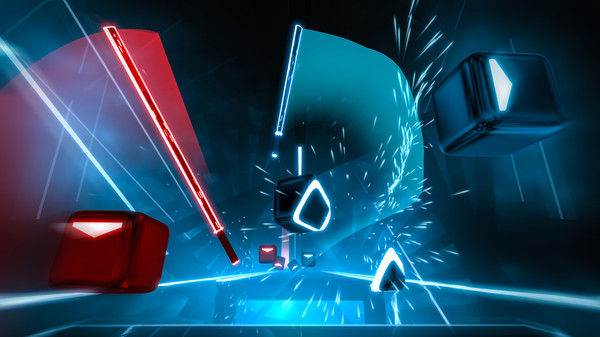
I actually wrote a whole article about how Beat Saber helped me with my magical practice, but at the heart of that was focus.
Focus was already something that I struggled with, and it was one of my goals going into 2020, because it doesn’t feel good to feel scatterbrained and jumbled up all the time. And the events of 2020 certainly made that worse! But I found that as soon as I slipped on the Oculus headset and started swinging lightsabers at boxes, I was in the zone in a way I hadn’t experienced in a while. And it happened so naturally!
This helped me in two enormous ways: practicing the art of being focused, and thinking about what helps foster focus.
Just entering that deeply focused state felt healing to my brain, like I was remembering what it even felt like to put distractions out of my mind. The brain is a muscle and the more time I spent feeling focused, the less daunting it felt to achieve that concentration again next time.
It also got me thinking about what it was about Beat Saber that made it so easy to focus. I do think the game is set up in a way that really encourages flow, which is absolutely a kind of focus, but another big factor is the virtual space. When I’m playing Beat Saber, the outside world doesn’t exist. It’s just me and the song and the virtual room I’m standing in. It might not feel like an earth-shattering revelation that “removing outside distractions makes it easier to concentrate,” but feeling for myself how much of an enormous difference it made was pretty enlightening. And that was a discovery that I could act on—I made it a priority to ensure that the environment I was trying to focus in was as calming and distraction free as possible, and it really did make a big difference.
Hades taught me: Resilience
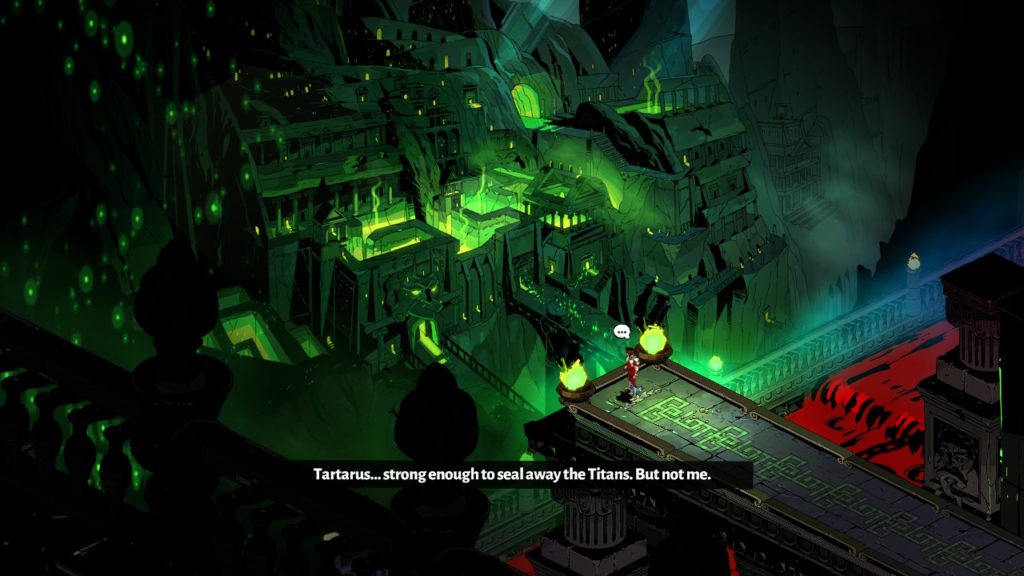
Hades was the surprise hit of 2020 and was named Game of the Year by several outlets, but I probably would have nerded out on it anyway, as a self-described “otaku but about Greece.” (One of the other ways I’m working on myself in the new year is learning to speak Greek!) But Hades was also an enormous source of strength for me in the latter half of 2020, and the reason for that was Zagreus’ resilience.
Hades is a roguelike, which is a whole genre of game where you play the same dungeon over and over, with procedurally generated levels, starting over after you die. But Hades does the roguelike experience a little different, by building that premise into the plot of the game. Zagreus desperately wants to escape the underworld, which is supposed to be impossible to do, and every time he dies, he’s shunted back to the House of Hades where he prepares to attempt to escape again. And again. And again.
Zagreus inspires me. Even when things are tough—really tough—he never even considers giving up. Even if he has failed dozens of times. Even if everyone around him thinks he’s crazy for continuing to throw himself up against this impossible task. There is never a shred of doubt in his mind about whether or not he’ll continue. It’s not even a question. He takes a deep breath, dusts himself off, and tries again.
I, too, have felt like I’m being thrown up against something seemingly impossible, again and again. The support work that I’ve done for the local protests—first in response to police brutality, and then continuing with local white supremacist and fascist groups—has kept me incredibly busy since June, and many of my days have been really heavy, or dangerous, or often both. While the important protest and direct action work that people have been doing this year is certainly not a game, on days when it felt like a struggle to get out there again and put myself on the line again, I found myself drawing strength from Zagreus’s relentless persistence. When I needed a bit of a boost to get me out of the house and back onto the streets, Zagreus was a good reminder that throwing yourself at the same problem again and again ultimately gets you closer to your goal, even on runs where it doesn’t feel like it.
Animal Crossing taught me: the value of incremental changes
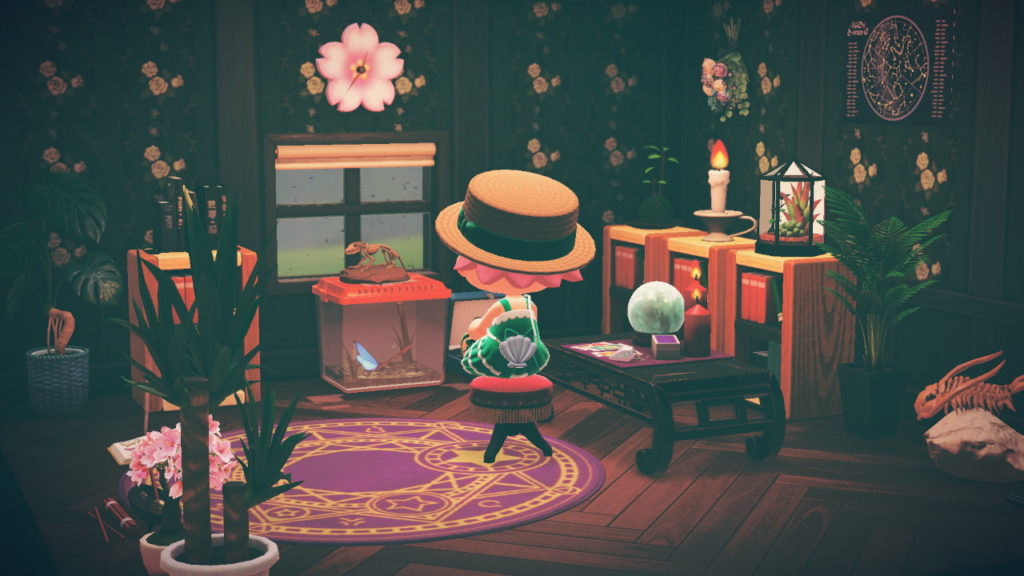
Of course, Animal Crossing: New Horizons was also a phenomenon this year, and there has been a lot of talk about why it was such a perfect game for keeping in touch with friends and finding ways to interact socially during early quarantine. But amid the (frankly embarrassing number of) hours I sank into New Horizons while I was unemployed in the spring, it also taught me something really valuable about a type of patience that I have always struggled with.
I have always had a really hard time with accomplishing things gradually over time. I’m not sure exactly what my problem was, but if I didn’t see progress at the rate my brain expected, I wouldn’t feel like I was making any progress at all. This manifests in lots of ways in my life, but I’ve always particularly noticed it with decorating and aesthetics. If I couldn’t make something look exactly how I wanted it to look, all at once, I felt like there was no point doing it at all.
And I started to feel this while I was playing Animal Crossing. I saw pictures of other people’s islands online, and I wanted my whole island to look just as good as theirs. But I wasn’t sure how to accomplish it. I wasn’t as skilled as them at things like terraforming. I didn’t have all the items I needed and it would take time to acquire them, as everything takes time in Animal Crossing. And my island was enormous. So it felt like a daunting, impossible project, the kind that would usually have me throw my hands up in frustration.
But I was bored and lonely and unemployed, so I just started working on my island, one little section at a time. And I found that it was coming out pretty good! And, actually, it was also pretty fun! It felt good to finish a little section of my island, admire how good it looked, and then say to myself, “alright, what’s next?” Seeing my own progress acted as a motivator to keep going with a longer project.
At some point, I had an epiphany. I think I was having trouble deciding what to work on next, and the only thing I could think of at the moment was something tedious, like digging up and moving around some flowers. I felt again like I wasn’t making any new progress. And that’s when I realized that every little thing I do is contributing to the whole. Even if I don’t feel like I’m accomplishing much right now moving around my flowers, it will be done and I won’t have to do it later and it will free me up to work on other parts of the project. Everything I do doesn’t have to be a masterpiece itself, but if I want to get to a masterpiece eventually, everything I do will have been a part of that.
The feeling of satisfaction I got from seeing how nice my island looked really caused me to internalize this, and I’ve seen it all over my life since then. In the most obvious sense, in December I started a project renovating and redecorating my own house, estimating that it would take me about three months, until the end of February. In mid-January as I write this, I’m actually ahead of schedule, although there’s still work to be done. I’ve lived in my house for almost 5 years, and it has never been cozy and comfortable in the way I wanted. Because I wasn’t sure how to achieve the coziness I was looking for, I didn’t bother to try. But now I see how each change I make contributes towards a whole, and I can feel it getting better slowly over time.
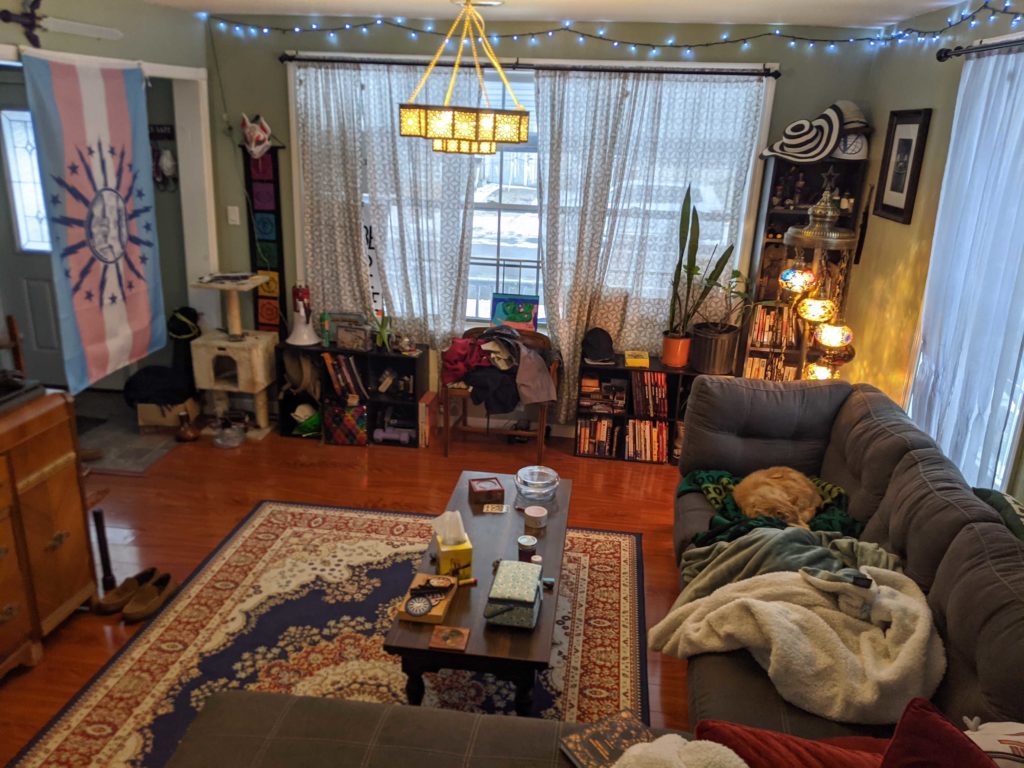
I’ve noticed this in other parts of my life too. It’s okay that I still barely know any Greek, because every time I practice, I’m getting just a little bit better. Every time I study my alchemy (which is another project I’ve undertaken lately), I know a little bit more about it than if I had skipped studying that day. If I can trust that I’m making progress every day, even if it’s not obvious to my conscious mind, it’s easier to motivate myself to practice every day—but if I know that little bit of progress is just one small piece of a whole, it’s also easier to forgive myself if I miss a day, because my overall success doesn’t hinge on what I do today specifically. This was huge for me. I feel more productive, more accomplished and more prepared to tackle big projects in the future.
It’s easy to write off video games as mindless distractions, but they’re a form of art, and art is always reflective of the things we value in life. I feel good about the way these three games helped me focus on things I value during a difficult year.